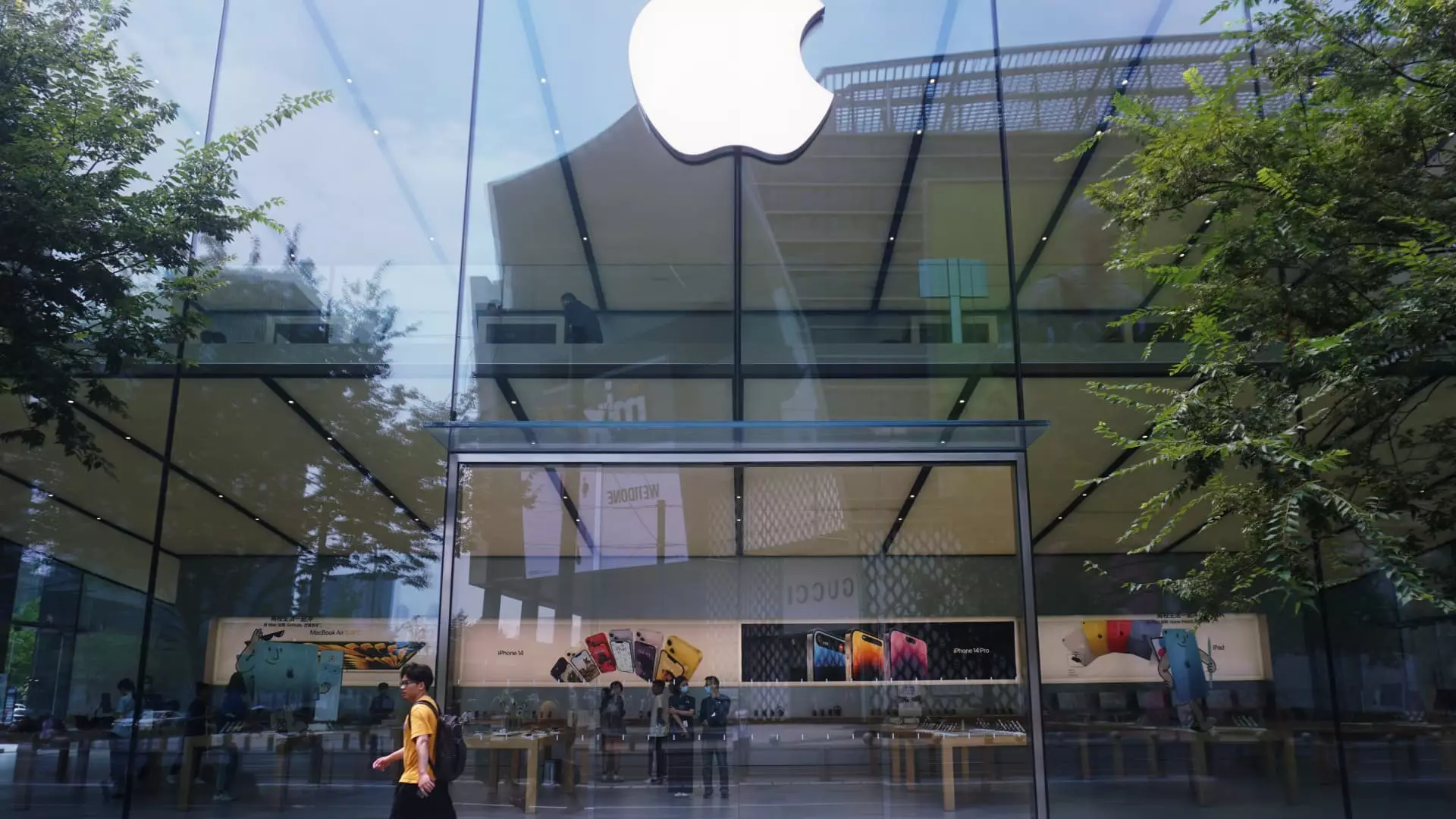The impending arrival of a foldable iPhone has stirred a whirlwind of speculation and strategic positioning among industry giants. While Apple remains tight-lipped about official plans, the ripple effects are evident—particularly in the role of Chinese component manufacturers like Lens Technology. Far from just a peripheral player, Lens Tech appears to be executing a calculated gambit to solidify its position in the future of mobile innovation. This isn’t merely a story about a glass supplier; it’s a testament to how Chinese firms are leveraging geopolitical shifts and technological trends to carve out commanding market positions, often at the expense of Western dominance.
The recent surge in Lens Technology’s financial activities underscores a broader trend: Chinese corporations increasingly turning to Hong Kong’s capital markets to fuel ambitions that go beyond mere manufacturing. By raising substantial funds on the Hong Kong Stock Exchange, Lens Technology is not only securing capital but also signaling its intent to expand its technological capabilities—specifically in foldable screen development. It’s a move that reflects an understanding of the strategic importance that foldable displays will hold, not just in smartphones but in the overall narrative of next-generation consumer electronics.
What makes Lens Tech’s positioning particularly shrewd is its ability to attract international investors, including prominent figures like hedge fund titan Steve Cohen. Cohen’s significant stake—over 8%—is less a coincidence and more a calculated signal to the market. It indicates confidence in the company’s strategic trajectory, especially as it gears up to serve high-end, innovative devices. This infusion of capital isn’t about incremental gains; it’s about positioning Lens Tech as a pivotal supplier capable of shaping the future of mobile displays.
Strategic Diversification: Beyond Apple
Despite the obvious focus on Apple’s rumored foldable, Lens Technology’s expansion efforts demonstrate a keen awareness of the diversification needed to sustain competitive advantage. The company’s disclosures reveal a balanced approach: a significant portion of proceeds will fund foldable display R&D, but there’s also a clear intention to penetrate other markets—particularly within China’s burgeoning smart device sector.
The company’s strategic move to expand internationally, with factories in Vietnam and Mexico, signals an understanding that reliance on traditional western markets or a single customer like Apple is a risky endeavor. Instead, Lens is aiming to diversify its customer base, supporting a variety of tech firms spanning from smart glasses makers to robotics companies. This trend aligns with China’s broader industrial policy: fostering a resilient, vertically integrated tech ecosystem less vulnerable to geopolitical disruptions.
Meanwhile, the prospect of a potentially slimmer, more advanced iPhone this year means Lens Tech could see revenue from existing, high-margin production lines before the revolutionary foldable hits the market. This dual strategy—serving current demand while preparing for future breakthroughs—illustrates the pragmatic foresight that underscores China’s tech ambitions. It’s not merely waiting for revolutionary products; it’s positioning itself to lead the supply chain in their realization.
The Geopolitical Arena and Market Dynamics
The context of China’s rising influence in global technology markets is unavoidable and deeply intertwined with these corporate moves. U.S. tariffs, export restrictions, and ongoing trade tensions pose constant threats to Chinese tech firms. Yet, companies like Lens Tech navigate this landscape with adaptive strategies—setting up production hubs in friendly jurisdictions, such as Vietnam and Mexico, to mitigate risks and maintain supply chain resilience.
This deliberate decentralization of manufacturing mitigates political vulnerabilities and allows Chinese firms to compete on a more level playing field internationally. The company’s move to go public in Hong Kong is more than a capital raise; it’s a strategic positioning within a geopolitical battleground, aiming to rally international investors who are seeking exposure to China’s emerging tech giants outside the constraints of U.S. sanctions.
Furthermore, Lens Tech’s modest export exposure to the U.S. market suggests a strategic realignment—less dependency on Western markets, more focus on domestic and regional demand, and potentially, a push into markets where Chinese influence isn’t as constrained. This dynamic shift indicates a broader trajectory: Chinese firms are increasingly emboldened to develop and sell advanced components, even if they face uncertain political climates elsewhere.
Implications for the Global Tech Ecosystem
The broader implications of Lens Technology’s rise resonate beyond Chinese borders. As a key supplier in the evolving foldable smartphone ecosystem, the company embodies a shifting power dynamic—where innovation and manufacturing prowess are no longer solely centered in the West. This shift presents a challenge to traditional tech hegemony, positioning China as an indispensable hub for future mobile innovations.
Yet, this transition is not without its criticisms. Questions about technological sovereignty, transparency, and global market fairness persist. However, from a pragmatic standpoint aligned with center-right liberalism, this development underscores the importance of competition and innovation driven by diverse geopolitical players. Chinese firms like Lens are pushing boundaries, fostering competition that ultimately benefits consumers through better technology and lower prices.
In a world increasingly shaped by global supply chains and geopolitical realities, the strategic moves of companies like Lens Technology serve as a bellwether for a multipolar technological future. While Western firms may lag behind in aggressive expansion and rapid adaptation, Chinese companies are demonstrating that resilience and strategic diversification are key to maintaining their rising influence in the tech world.

